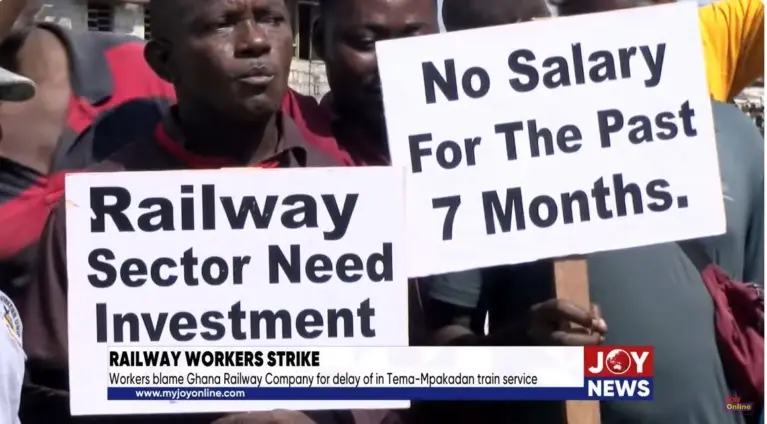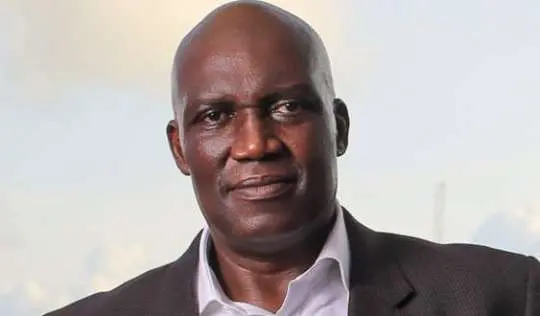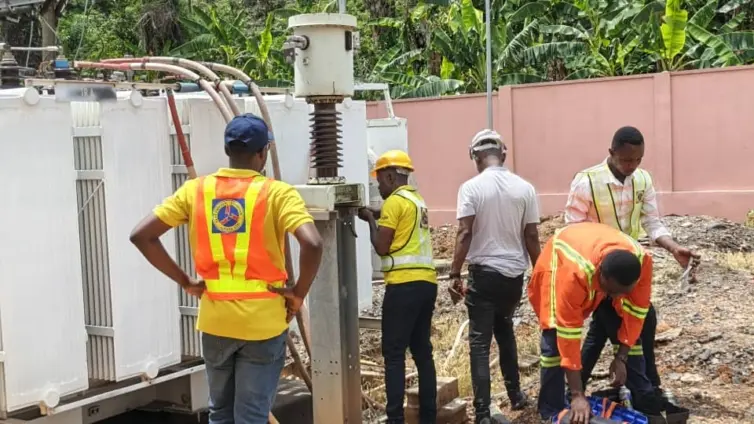The rumble of discontent is growing within Ghana’s railway sector. Plagued by aging infrastructure and what workers describe as persistent mismanagement, the Ghana Railway Company Limited (GRCL) recently faced a strike as employees demanded better working conditions and even called for privatization of the railway system itself. In response to these challenges, the Ghanaian government is actively pursuing a strategy of private sector involvement to revitalize the sector. This includes attracting private investors to address operational inefficiencies and infrastructure deficits.
According to Dr. Fredrick Appoh, the Acting CEO of the Ghana Railway Development Authority (GRDA), this initiative focuses on completing key infrastructure projects and actively seeking private sector partnerships. The government hopes that by injecting private capital and expertise, it can unlock the railway’s long-term potential to reduce road congestion, enhance the transportation of resources, and stimulate economic growth. This post delves into the details of this ambitious plan and explores its potential impact on the future of Ghana’s railway network.
The urgency behind the push for private sector involvement stems from the current state of Ghana’s railway sector. Years of underinvestment and alleged mismanagement have led to a decline in service quality and operational efficiency. The recent strike by railway workers, protesting poor conditions and delayed salaries, underscores the severity of the problems. The government views private sector participation as a crucial step towards addressing these challenges and restoring the railway to its former glory.
The Ghanaian government’s strategy for railway revitalization is two-pronged, focusing on both infrastructure development and private investment.
One key aspect involves the completion of the Tema-Mpakadan railway project. As Dr. Appoh explained, the GRDA is actively conducting market sounding to gauge private sector interest in operating the newly constructed Tema-Mpakadan line. This project is seen as a critical step in expanding Ghana’s railway network and improving connectivity between key economic zones.
The second major thrust of the government’s strategy involves attracting private investors to extend the Western Railway Line. Market assessments are underway for the stretch from Huni Valley through Dunkwa to Boankra, as well as from Dunkwa to Nyinahin via Awaso. This extension is intended to unlock the economic potential of the western region, facilitating the transportation of resources and boosting trade.
Investing in railway development offers significant long-term benefits for Ghana. A robust railway system, with a lifespan exceeding 50 years, can alleviate pressure on Ghana’s road network, particularly in resource-rich areas where heavy truck traffic contributes to road degradation. According to Dr. Appoh, moving resources by rail from mining sites directly to the ports offers a more efficient and sustainable solution, reducing road damage and improving overall logistics.
Currently, work is progressing to link the existing end of the Western Line to Nsuta, a 15-kilometer stretch that will facilitate the haulage of manganese by rail. This project exemplifies the government’s commitment to expanding the railway network and leveraging its potential to support key industries.
The striking workers of the Ghana Railway Company Limited are demanding better working conditions and have pointed to what they describe as persistent mismanagement within the company. They are advocating for privatization as a means of addressing these issues and improving the overall efficiency of the sector. The workers have vowed to continue their strike until their concerns are addressed, highlighting the urgency of finding a sustainable solution to the challenges facing Ghana’s railway.
The government’s strategic move to involve the private sector in railway revitalization is a direct response to these pressing challenges. The success of this initiative will depend on addressing the concerns of striking workers, attracting reliable private investment, and efficiently executing crucial infrastructure projects. The future of Ghana’s railway sector hinges on this strategic shift, promising potential benefits such as reduced road congestion, enhanced resource transportation, and long-term economic growth.
Image Source: MYJOYONLINE





















